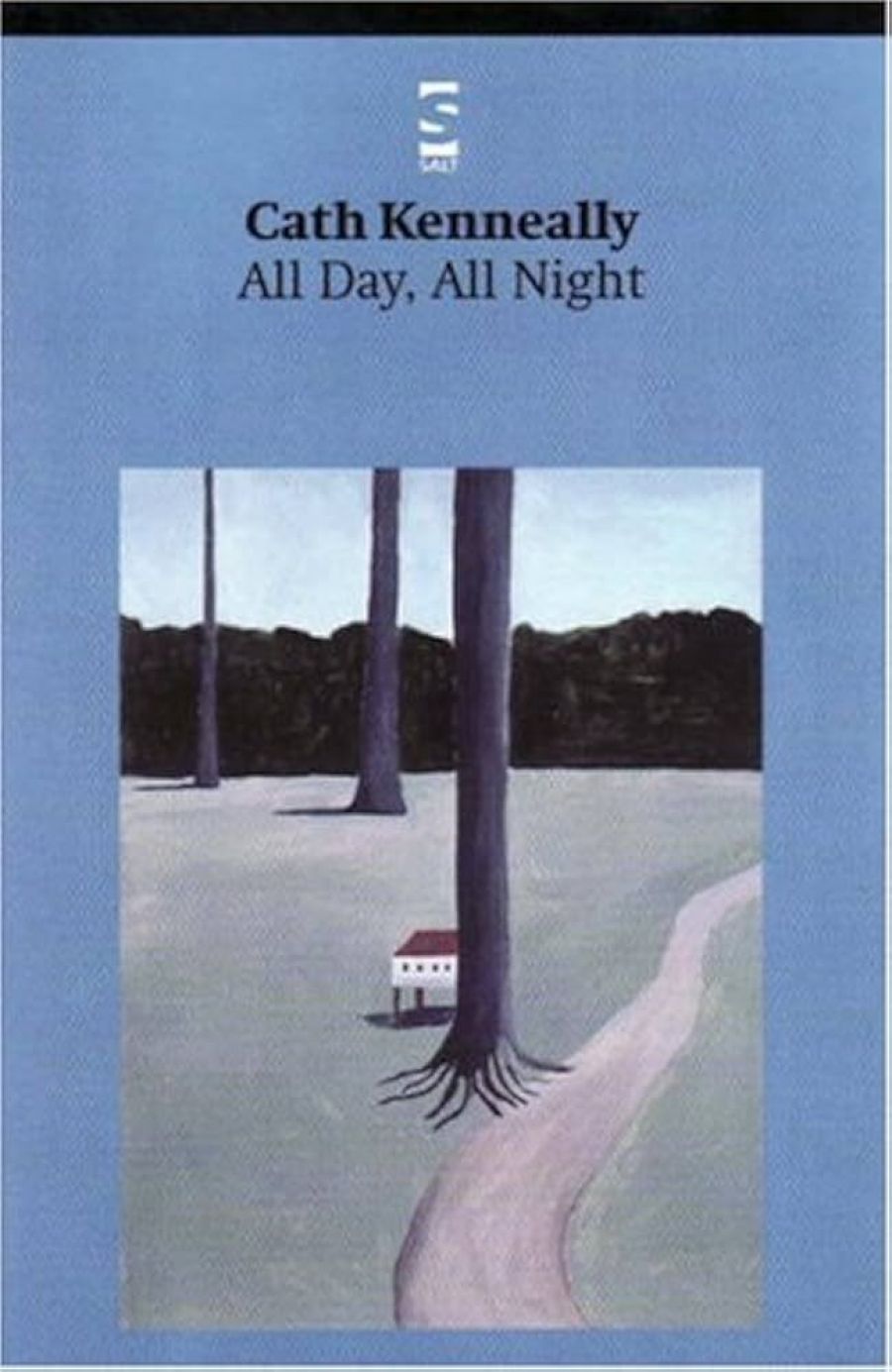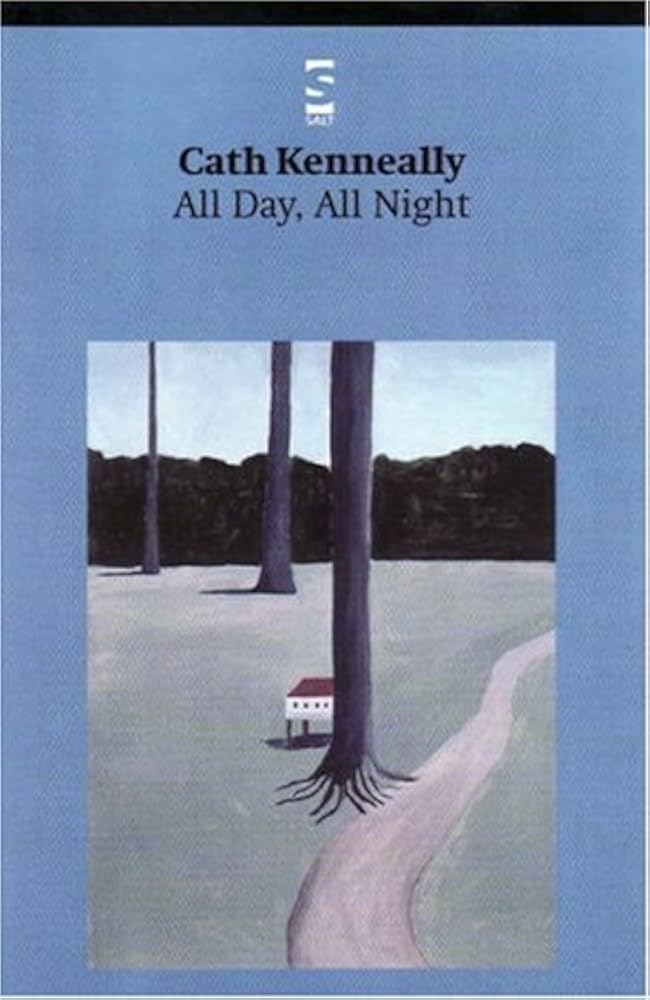
- Free Article: No
- Contents Category: Poetry
- Review Article: Yes
- Online Only: No
- Custom Highlight Text:
Lawrence Bourke’s A Cold Touch begins with a poem called ‘Advice to a Failure’. Expressed with such force as to render grammar a secondary consideration, its argument is hard to grasp al first, but the poem is only technically meaningless: it contains, I think, an important truth:The committee can stick
their mate with medals until the man’s all brass
but his brilliant chest will never help him frame
a line to shine like those of poets who came
to nothing but writing well writing for themselves
and us the simple truths some call fiction.The line that shines, in other words, is a prize that outshines the brass and medals. Few, I suspect, would disagree with Bourke on this specific point. But why is something so uncontroversial expressed with such conspicuous force? Is Bourke, I wonder, as baffled as I am as to why certain books get medals at all?
- Book 1 Title: A Cold Touch
- Book 1 Biblio: lndigo, $18pb, 72pp
- Book 2 Title: All Day, All Night
- Book 2 Biblio: Salt, $19.95pb, 99pp
- Book 2 Cover Small (400 x 600):

- Book 2 Cover (800 x 1200):

- Book 3 Title: Corrugations
- Book 3 Biblio: Ginninderra Press, $20 ph, 125 pp
All Day, All Night, Cath Kenneally’s third collection of poetry, was shortlisted, the back cover blurb informs us, for the Vincent Buckley Poetry Prize. Kenneally has won awards before: a Barbara Hanrahan Fellowship in 1998, and the John Bray National Poetry Prize (for her second collection) in 2002. Personally, I find her success hard to fathom, though the fact of her having attained that success allows me to feel less bad about saying so. The problem is not her choice of content (no one can deny her ‘warmth’ and ‘toughness’, two of the qualities singled out by the John Bray National Poetry Prize judges), but the laziness with which that content is handled – the poems’ almost total failure at the level of technique. Take, for example, ‘King of Sturt Creek’, a poem about a ‘six-foot concrete / Neptune’ advertising a service station:
The King stands
in a shallow basin, white, strong, upright
if rudimentary of form, grasping his iron
trident, from which three jets of water spit
he’s wearing an iron crown
He marked the place along the creek
where we liked to end our walks [ ... ]
These look to me like three distinct sentences, but what is the punctuation telling us? The initial ‘The’ comes after a full-stop – hence the upper case. But ‘spit’, where the sentence seems to end, and ‘crown’, which ends the second sentence, are followed by no punctuation at all. Kenneally’s use of capital letters is similarly inconsistent: the ‘h’ of ‘he’s’ is lower case; the ‘H’ of ‘He’ is upper case. Such licence, perhaps, is the poet’s prerogative, but I’m not concerned with the ‘correct’ punctuation, nor, indeed, with the ‘correct’ capitalisation. Rather, I’m concerned with the poem’s rhythm and the fact that a reader cannot possibly know how the poet intends this poem to sound.
These are not just editorial oversights. Kenneally’s ear for rhythm is suspect. This is demonstrated by ‘Millennial Two-Step’, the only poem in All Day, All Night to follow a strictly metrical pattern. The poem consists of nineteen lines of two trochaic feet. In order to sustain the metre, however, the reader has to syncopate. ‘Elmore Leonard / hallelujah / Andy Warhol / discourse theory ... ‘So far, so trochaic. But, ‘Garcia Márquez ... Roy and HG’? In order to make these lines fit the metre, the reader is required to place an accent on a normally unaccented beat.
‘Nothing neat. Nothing that lands on all four feet’: Virginia Woolf’s aesthetic imperative, the epigraph to ‘All Four Feet’, appears to endorse strategic failure. In my view, however, there’s a world of difference between not landing on all four feet and falling in a heap. As to the dexterity of Kenneally’s landing, my own conclusions are already clear.
Corrugations, by Ann Nadge, is comprised of 116 poems, most of them very short. ‘A friend says he’d like more poems / And just when you’re starting to wonder / Where the next one is coming from / You open the washing machine lid ...’ This is the beginning of ‘Spider Poem’, so called because, inside the machine, ‘Is a groggy-looking spider’. The poem ends:
And as you gently help her out,
The next poem comesAbout friends who do that repeatedly –
Help you out
When the crazy spin of life
Washes over youAnd catches you unaware.
This. I’m afraid. is fairly typical. The isolation of the final line is a clumsy attempt at gravitas, the choice of the second person pronoun a half-hearted bid for universality. Nadge’s use of metaphor is similarly unsubtle. Indeed, Corrugations is full of instances of the Metaphor Made Explicit. This is a common habit amongst poetasters, since it does away with the tiresome business of having to come up with a striking image that suggests, independently, the thing represented. Thus: ‘Sometimes by day / the stealth cat of knowing comes / silently creeping / to the mind’s closed door’; or ‘the glass bowl of anguish/ traps me again/ in the four-second knowing / of a goldfish mind ...’ To me, such lines sound deeply silly. (Why ‘the crazy spin of life’ and that washing machine, I ask myself: why not ‘the washing machine of life’?)
The best poem in the book, I think, is the title poem, ‘Corrugations’, which records the familiar and pleasant sensation of being all the more inside for the sound of the rain on something outside (in this case, a sheet of corrugated tin). This one. at least, I can find some space for ‘in the warm backpack of[my] mind’.
Lawrence Bourke’s A Cold Touch is the best of these books, though still disappointing. As the final lines of ‘Advice to a Failure’ (quoted earlier) clearly show, the poet lacks the formal control implied by the book’s austere-sounding title. He does, however, strive for it, and I have the sense that Bourke is a poet who not only reads, but thinks about, poetry. The book is dotted with allusions and references – to Horace, W.H. Auden and Wallace Stevens, and to aesthetic concepts such as the Pathetic Fallacy and Wordsworth’s ‘wise passivity’ – which suggest a man in love with his craft, even if he’s not in complete control of it.
While the poet’s Romanticism sometimes seems a little quaint or anachronistic (‘We have entered the roar of the machine / And the world contracts to what the visor frames’), it is nevertheless responsible for by far the most interesting poem in the book. ‘The Gift of Animals’ is a spiritual epiphany that reminds me a little of W. S. Graham. Its rhythm conveys the feeling of uplift, while keeping tabs on the airy diction:
Whatever you’ve done, or failed
to do, how can it compareto the sea and the light
lifting off the sea and risingover the hill and you
with your back to the townand the seething industry?
‘[I]f they say you fail / take the compliment’ is Bourke’s ‘Advice to a Failure’. My advice to Bourke is to write fewer poems like ‘Advice to a Failure’ and more poems like ‘The Gift of Animals’.


Comments powered by CComment